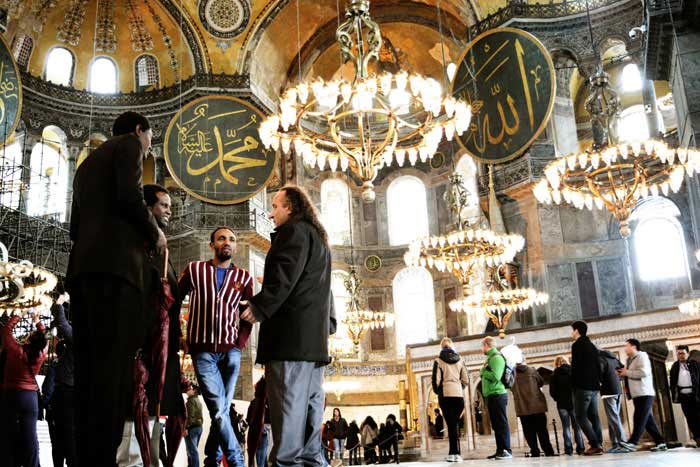For the entire length of the Via Caesarea, the golden chariot continued its stately tour with Galerius walking beside it like a lackey at his master’s stirrup. Only when the city had been completely crossed did Diocletian, who had stood erect in the vehicle the whole way, never glancing once at the silent crowds lining the street on either side, allow die humiliated Caesar to resume his mount.
Though the other officers followed the imperial chariot across a bridge to the island, or insula, in the center of the Orontes, where the palace of the legate, which had been taken over by Diocletian as headquarters, was located, Constantine was not invited to accompany them. Instead, he rode with Dacius to the stables to see that his men and their mounts were adequately quartered. But he knew Diocletian well enough now to be sure his feat in saving King Tiridates’ command and the stragglers of Galerius’ army from destruction would not go unrecognized. And he was not surprised when a centurion wearing the purple crest and helmet of the Imperial Guard, sought him out and saluted.
“By order of the Emperor,” the centurion announced. “Tribune Flavius Valerius Constantinus will this day assume the post of Commander of the Imperial Guard and the household troops.”
Presided over by Diocletian
In his new capacity Constantine attended the military staff conference presided over by Diocletian that same afternoon. Present also were Galerius, Maximin Daia, Severus, Licinius, and a number of other highranking officers. But though he was no longer in uniform and now wore the rich robe and the pearlset circlet of an emperor upon his brow, no one could doubt that Diocletian was in complete command.
“How many legions will you need to undo what has been done in the past few weeks?” the Emperor asked Galerius.
“Ten, with twice the normal complement of cavalry from the auxiliary.”
Diocletian’s eyebrows rose at the figure, for it was almost twice the number with which Galerius had launched his illfated thrust into Persian territory, but he did not comment.
“My army from Egypt will arrive here soon and will set about preparing for the next Persian campaign,” Diocletian said. “Meanwhile, you will leave for the Danube frontier tomorrow to raise the rest of what you will need.” He paused, then added pointedly, “King Tiridates tells me that when you reach his territory he will be able to raise additional auxiliary levies as you retake his land.”
Read More about The most infamous part of Antioch






